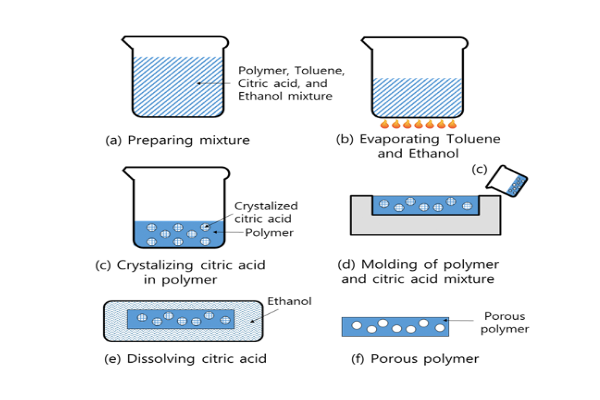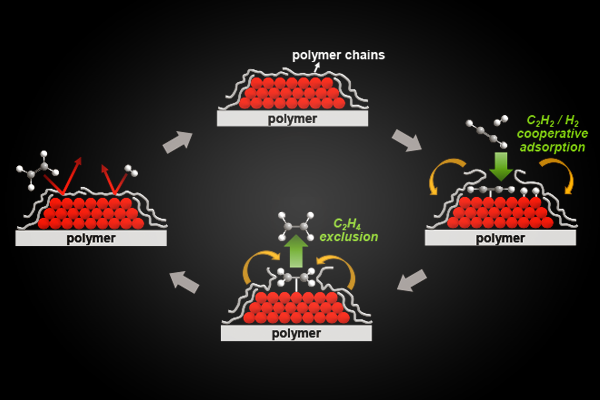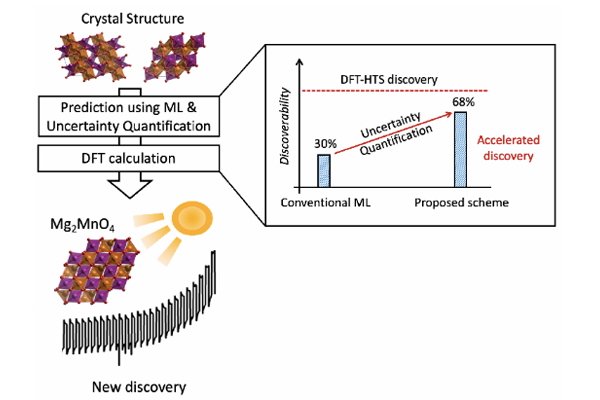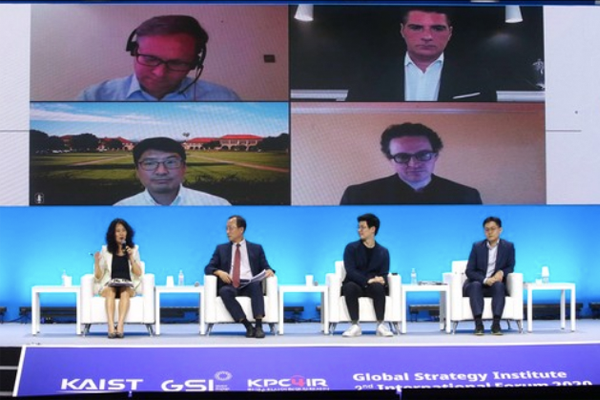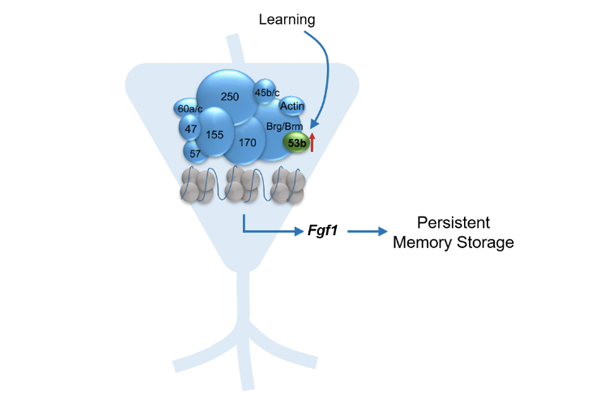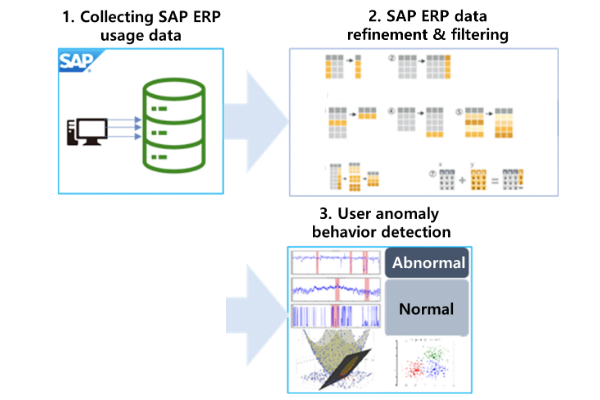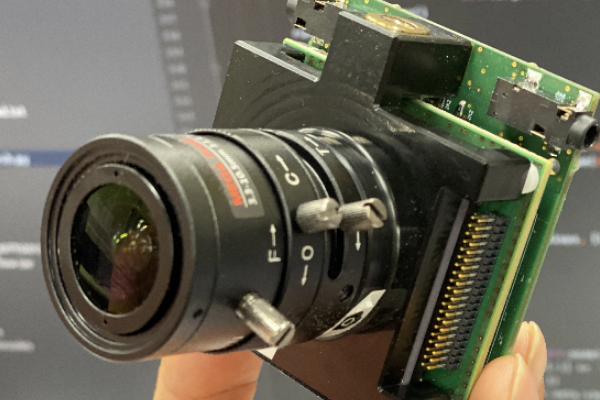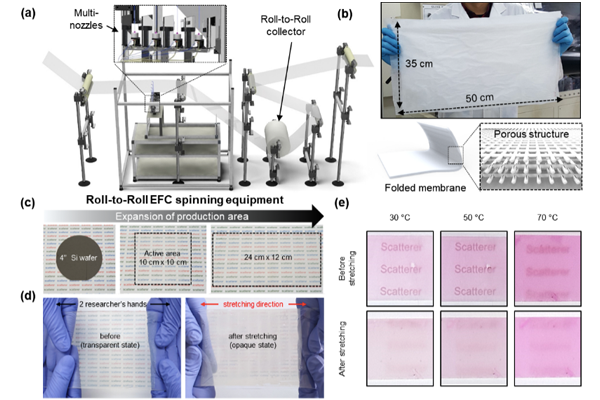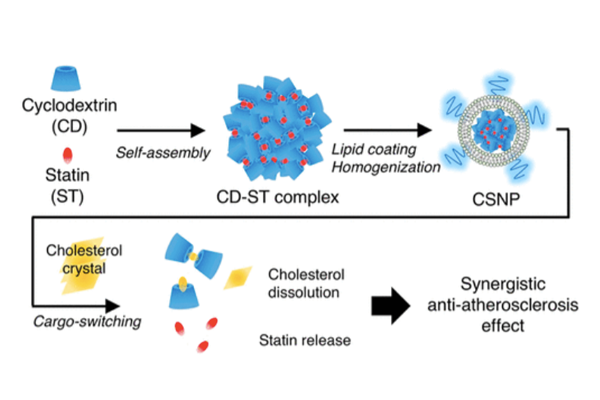-
Research Highlight
Reinforcement Learning Algorithm for Batch Chemical Process Control
Haeun Yoo, a member of Prof. Jay H. Lee’s group, has proposed a phase segmentation approach and modified deep deterministic policy gradient algorithm for batch process optimal control under uncertainty....read more
-
Research Highlight
Breathable polymer membranes for wearable devices
Prof. Young-Ho Cho’s group has developed a new fabrication technique for breathable polymer patches that rapidly wick sweat away from the skin. The technique could reduce the redness and itching caused by wearable biosensors that trap sweat beneath them....read more
-
Research Highlight Top Story
Unique metal-polymer interaction enables the design of chemoselective and long-lived hydrogenation catalysts
Dynamic coverage of metal catalysts with polymer chains can control the transport/reaction of molecules, remarkably increasing catalytic selectivity and lifetime....read more
-
Research Highlight
Accelerated Material Design Framework using Uncertainty-Quantified Hybrid Machine Learning/Density Functional Theory Approach
Prof. Yousung Jung’s group has developed a new accelerated high throughput screening (HTS) method using uncertainty-quantified machine learning (ML) and density functional theory (DFT) that was applied to explore the Mg-Mn-O chemical space for photoanode application. Notably, the proposed HTS scheme required only 1.5% of the target chemical space for further DFT calculations, accelerating the entire process by > 50 times for the same discovery compared to the brute-force DFT-HTS done previously. This means an improvement of the screening performance (discoverability) by more than a factor of 2 compared to the conventional ML-based HTS approach....read more
-
Research Highlight
The KPC4IR hosted a second GSI international forum to envision challenges for educational innovation in the non-contact society in the post-coronavirus era.
KPC4IR (Korea Policy Center for the 4th Industrial Revolution) together with GSI (Global Strategy Institute) hosted the Second GSI International Forum on challenges for educational innovation in the non-contact society in the post-coronavirus era. Live-streamed on Youtube, Naver TV, and KTV on June 24, 2020, the Forum gathered 15 global experts and advisors of educational issues to examine significant challenges for the future of education in an increasingly non-contact society and envision inclusive educational innovations in the post-COVID-19 era....read more
-
Research Highlight
BAF53b regulates memory persistence via FGF1
Delayed induction of BAF53b in the amygdala after fear learning has a crucial role for memory persistence via regulating FGF1 expression....read more
-
Research Highlight
Development of AI/ML based User Anomaly Detection Solution for Enterprise Resource Planning System
At the KAIST Institute for Information Technology Convergence, the Intelligent Technology Research team has conducted research and development of an AI/ML based user anomaly detection solution for enterprise resource planning system (ERP), particularly targeted at SAP ERP, by collaborating with ARMIQ (a company with SAP ERP system expertise). The team is developing core modules for ERP user anomaly detection solutions such as user behavior categorizers, AI/ML inference models, model optimization methods). By utilizing domain expertise related to SAP ERP and cutting-edge AI/ML techniques, it is expected to achieve cost-effective localized ML based user anomaly detection solutions....read more
-
Research Highlight
Imaging with Events: High-resolution High-quality HDR Imaging using Event Cameras
New algorithms have been developed to generate non-blurry, high-resolution, high-quality, and high-dynamic range intensity images using sparse event streams from an event camera, which is a new imaging sensor able to capture visual information with low latency even under extremely low illumination....read more
-
Research Highlight
Ultra-large and Multi-stimuli-responsive Smart Windows
Prof. Il-Doo Kim, Prof. Hong Jung-Wuk, and Prof. Seokwoo Jeon jointly developed a novel multi-stimuli-responsive (thermochromic and mechanochromic) membrane based on light scattering at strain-induced nanogaps from oxides and elastomers together with thermochromic dyes. The combination of the polymer writing technique with roll-to-roll production effectively expanded the production area of the smart window membrane to an exceptionally large scale of nearly 300 cm2, far beyond those of previously reported optical modulating membranes to date....read more
-
Research Highlight
New Nanoparticle Drug Combination Treats and Prevents Atherosclerosis
Dr. Ji-Ho Park’s group developed a cargo-switching nanoparticle (CSNP) system that can bind to cholesterol and then release an anti-inflammatory drug (statin) in a plaque-containing microenvironment. The as-developed CSNP had a core-shell structure, with a core composed of cyclodextrin and statin and a shell of phospholipids. In vitro, once interacting with cholesterol, which had a higher affinity to cyclodextrin than statin, the CSNP can instantly release statin and scavenge cholesterol by cargo-switching. In vivo, in a mouse model of atherosclerosis, the CSNP administered systemically can effectively target atherosclerotic plaques and reduce their associated cholesterol and macrophages, leading to prevention of atherogenesis and regression of established plaques....read more

291 Daehak-ro Yuseong-gu Daejeon, 34141, Republic of Korea
Partnered with KAIST Breakthroughs and KAIST Compass

